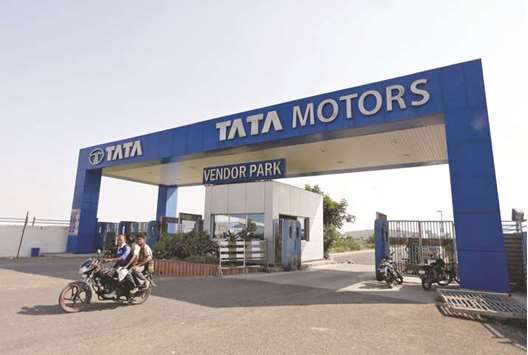Cooperation talks between Germany’s Volkswagen Group and India’s Tata Motors about joint development of a car for emerging markets have ended amicably, the two companies said yesterday.
The collapse of the talks is a further blow to Volkswagen’s (VW) efforts to develop a cheap vehicle platform for Asian markets, after an earlier alliance with Japan’s Suzuki Motor Corp also fell apart.
In March Tata Motors and VW announced a Memorandum of Understanding (MoU) for a long-term partnership to explore joint development of products for customers in India and other markets.
The German group’s Czech arm Skoda, commissioned by VW to lead the talks with Tata, was exploring a possible entry-level car platform together with the Indian manufacturer, using Tata’s AMP vehicle platform as a basis, a VW group source said.
Skoda dropped the idea of developing the AMP platform on fears that it would need significant further investment to meet future crash-test and engine emissions requirements and would instead explore parent VW’s MQB platform for possible further savings, said the source, who declined to be named.
“The two companies have come to the conclusion that at the present point of time the technical and economic synergies cannot be realised in the desired way,” Skoda said yesterday, confirming a Reuters story. “We have evaluated the technical feasibility and degree of synergies for the envisioned partnership.
We have concluded that the strategic benefits for both parties are below the threshold levels,” said Tata Motors chief executive Guenter Butschek, the German automotive and aerospace industry veteran who joined the Indian company last year.
But the two automakers, which also studied joint development of components, did not rule out the possibility of collaboration in the future after holding what Skoda called “constructive talks” over the past five months.
Foreign carmakers like VW, General Motors and Fiat Chrysler have struggled in India where more nimble rivals such as Maruti Suzuki and Hyundai Motor have cornered two thirds of the market.

Men ride a motorbike as they come out of a Tata Motors’ car plant at Sanand in the western Indian state of Gujarat. The company, which is struggling to boost sales, has been trying to turn around its loss-making domestic business by modernising its products, improving efficiency and streamlining its organisation.
